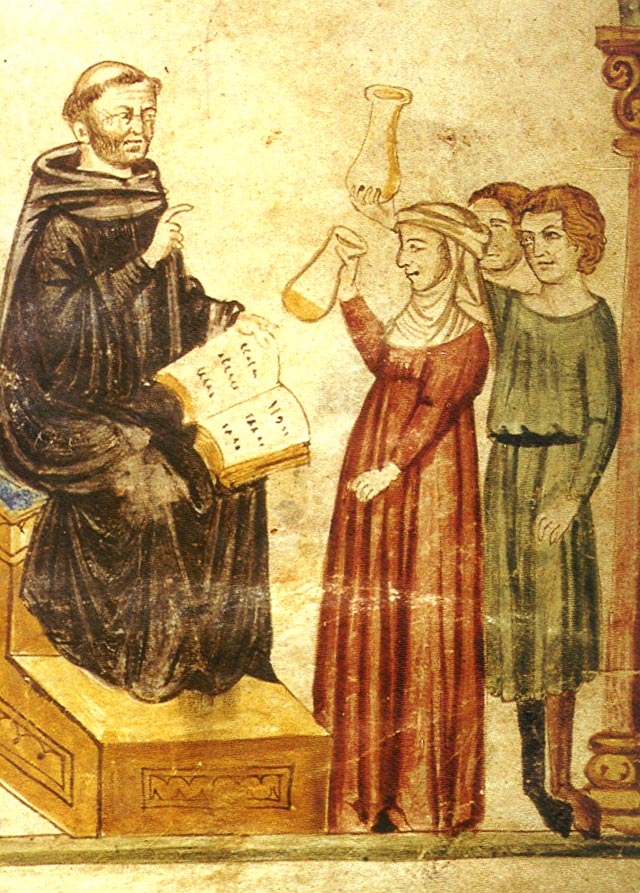Constantine the African

Constantine the African (Latin Constantinus Africanus) was an eleventh-century translator of Greek medical texts.
He was a native of Carthage, then under Arab rule. As a Christian he had a good knowledge of Latin, enabling him to translate medical works from Arabic. He was invited to join the Schola Medica Salernitana by Alfano I, Archbishop of Salerno c.1065 in order to aid in the translation of various Arabic manuscripts. In this way he helped reintroduced Greek medicine to Christian Europe. His translations of Hippocrates and Galen first gave the West a view of Greek medicine as a whole. He also adapted popular Arabic handbooks for travellers into his Viaticum. The twentieth chapter of the first book of that work deals with the subject of love.
Life
Constantine the African (born c. 1020, Carthage or Sicily-died 1087, monastery of Monte Cassino, near Cassino, Principality of Benevento). Constantine possessed much knowledge in many different languages, such as Greek, Latin, Arabic, and several Oriental languages. He had acquired these different languages during his extensive travels in Syria, India, Ethiopia, Egypt, and Persia. At the University of Salerno, which is Europe's first organized medical school, was where Constantine the African had studied. Later, he entered the Monte Cassino, the monastery founded by St. Benedict in 529.[1]
Translations
The first translation from Arabic to Latin from the works of Constantine the African was the Complete Book of the Medical Art (the Kitab) in 1087. This text was the first comprehensive Arabic medical text Shortly after, Constantine the African was then honored as the Pantegni, also known as, the “complete art”. The significance of this text was that it was an important resource for the student of the transmission of scientific ideas for that the Complete Book of the Medical Art contains a collaboration of 128 known manuscripts. This text also contains a survey of the 108 known Latin manuscripts of Constantine the African. This text rapidly became part of the standard medical curriculum for students.
His 37 translated books from Arabic to Latin, which had included The Total Art, a short version of the The Royal Book by the 10th-century Persian physician 'Ali ibn al-'Abbas, introducing Islam's extensive knowledge of Greek medicine to the West. Also of these 37 translated books included two treatises by Isaac Israeli ben Solomon, or Isaac the Jew, the Western caliphate's greatest physician. His translations of Hippocrates and Galen first gave the West a view of Greek medicine as a whole.
One of Constantine's most important achievements was his introduction to the West of Islam's extensive knowledge of Greek medicine, represented principally by his Pantechne (“The Total Art”, latinized liber pantegni) by the 10th-century Persian physician Ali ibn al-Abbas, or Haly Abbas.
See also
References
- Charles S. F. Burnett, Danielle Jacquart (eds.), Constantine the African and ʻAlī Ibn Al-ʻAbbās Al-Magūsī: The Pantegni and Related Texts. Leiden: Brill, 1995. ISBN 9004100148
de:Konstantin der Afrikaner it:Costantino l'Africano sk:Konštantín Africký fi:Constantinus Africanus